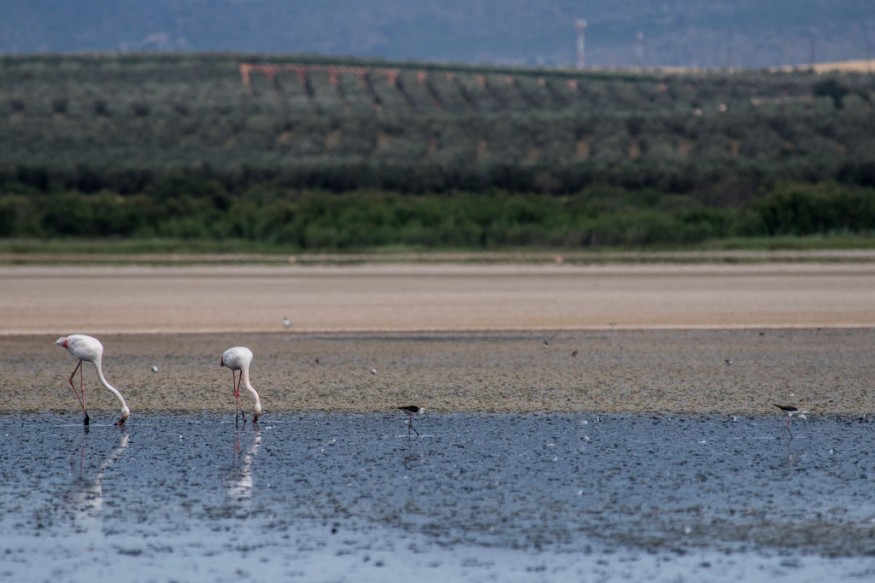
Due to the extended drought, flamingos in Fuente de Piedra, Spain, are being compelled to move to other areas.
Prolonged Drought in Spain
Flamingos are the most recent casualties of Spain's protracted drought.
The Fuente de Piedra wetlands in Andalusia would typically attract a large number of birds, but recent climate changes have caused the lagoon to dry up.
Widespread water shortages in Spain are also having an impact on cattle, agriculture, and reservoir levels. The country's rainfall fell by 24% between October 2022 and April 2023 compared to the norm for this time of year.
Flamingos in Fuente de Piedra Wetlands
With its 1,400 acres, the Fuente de Piedra Lagoon, the biggest in Andalusia, is situated in a unique location in the Western Mediterranean. According to the Andalusia Tourist Community, it is home to the most impressive colony of flamingoes to be found anywhere on the Iberian Peninsula.
The far-reaching Fuente de Piedra lagoon in Malaga was home to hundreds of pink flamingo couples the previous year.
An enormous wading bird colony exists in Europe thanks to the migratory birds' yearly arrival to saltwater marshes to hatch their eggs.
Only a small number of adults have been observed in the waters this year due to a prolonged drought that has caused the lagoon to dry up and force the birds to relocate.
Resident Alberto Gonzalez Sanchez believes it is unfortunate that tourists spend the day in the lagoon. The lagoon is often teeming with flamingos and other species. It appears that climate change is to blame for this.
The lagoon, a natural reserve since 1984, served as the hatchery for almost 200,000 flamingo chicks, according to the Office for Agriculture, Livestock, Fisheries, and Sustainability in Andalusia.
According to Africa Lupion, the Fuente de Piedra curator for natural spaces, the area's rainfall was at its lowest level since 1995 February.
Since records began in 1961, this spring in Spain was the warmest and second-driest on record. This summer's very high temperatures are probably going to last.
Also Read : Migratory Birds African Bee-Eaters Back in Norfolk to Nest, Experts Mark First Two-Year Streak
Water Crisis and Illegal Wells
South of Spain has another national park that is in trouble. An abundant ecology of plants and wildlife is supported by the Donana natural reserve's marshes, streams, and sand dunes.
But the wildlife is in danger due to overuse of water and the drought. The exploitation of the wetlands' water resources to irrigate surrounding crops has caused controversy.
Farmers in the vicinity of Huelva have come under fire for utilizing the lagoons to saturate their strawberry fields without a permit.
Nearly 510,000 illegal wells were thought to exist in Spain as of 2006. According to Greenpeace, there are actually more than a million unauthorized wells, Le Monde reported at the time.
As a result of the region generating 30% of the EU's and 98% of Spain's red fruits, the regional administration intends to legalize its system of wells.
The Andalusian government has been cautioned by the European Commission that granting amnesty would go against its duty to conserve the wetland.
According to the Spanish government, there is no longer any surface or subsurface water accessible for cultivation, EuroNews reports.
© 2025 NatureWorldNews.com All rights reserved. Do not reproduce without permission.





